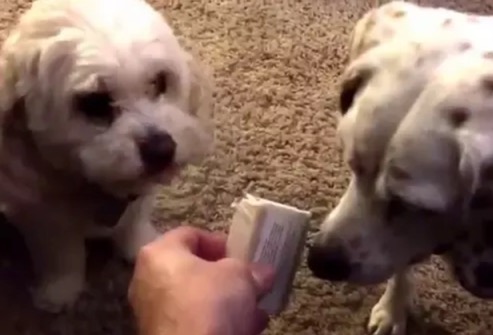Has your dog eaten pistachios with or without the shells? Are you worried your dog will get sick from eating pistachios and/or their shells? If so, you’ve come to the right place.
Connect with a verified veterinarian in minutes. Licensed vets are available 24/7 to answer your questions. No need to worry about your furry family member.
In this article, we’ll take a look at pistachios, whether they’re safe for dogs or not, and what you need to do if your dog has eaten these nuts. Let’s get started!
What are Pistachios?
Pistachios are related to cashews; who knew! They grow on small trees and are the seeds of these trees. It’s interesting to note that in 2017, Iran was the major producer of the world’s pistachios. They are responsible for over half of the pistachios produced around the globe!
Did you know the pistachio tree can live up to 300 years? The more we learn about these nuts, the more interesting they become. The yummy seeds are processed; they can be eaten whole, fresh, roasted & salted, and used to make other products such as ice cream and much more.
These yummy nuts are filled with nutrients, including:
- Protein
- Dietary fiber
- B vitamins
- Thiamin
- Calcium
- Riboflavin
- Folate
- Vitamin E
- Vitamin K
They’re considered to be very healthy for humans, but are they safe for dogs?
Pistachios & Dogs
The good news is that pistachios are not toxic to dogs; however, if a dog eats too many, he can become quite sick. There are also other considerations you should be aware of.
Pistachios can be dangerous to dogs for the following reasons:
Aflatoxin: is a mild condition that causes gastrointestinal problems.
Choking: dogs (and humans) can choke on the nuts and/or the shells.
Pancreatitis: pistachios (and other nuts) are high in fat, which means they can cause pancreatitis in dogs. This is a very painful, serious medical issue that can even lead to death if not treated.
Aspergillosis: this is a type of mold that can develop on nuts and other foods. This is very dangerous for dogs. It can attack the respiratory system, cause lameness, weakness, and incoordination.
Intestinal blockage: if a large number of pistachio shells are eaten, it’s possible they could become lodged in the intestines and cause a blockage. This is a very serious condition that can lead to death if not treated.

Review symptoms, medications & behavior to keep your pets healthy with a Vet Online in just minutes.
Ask a Vet Live NowSymptoms of Pistachio Poisoning
You may notice these symptoms if your dog has eaten too many pistachios with or without shells:
- Dehydration
- Diarrhea
- Greasy stools
- Vomiting
If these symptoms last longer than 24 hours, then it’s best to call the vet. And call the vet if your dog develops any other concerning symptoms.
Symptoms of Intestinal Blockage in Dogs
Your dog may show these symptoms if he’s eaten a large number of pistachios and their shells:
- Abdominal swelling & pain
- Constipation
- Diarrhea
- Vomiting
- Lethargy
- Lack of appetite
If your dog is showing these symptoms, then call the vet immediately. This is a life-threatening medical emergency.
The good news is that one or two pistachios (with or without shells) will not hurt your dog. If he does happen to eat too many pistachios, the good news is the health issues that may result are treatable. However, getting your dog to the vet fast, especially for an intestinal blockage, can make all the difference. You may just save your dog’s life.
Connect with a verified veterinarian in minutes. Licensed vets are available 24/7 to answer your questions. No need to worry about your furry family member.

Kim
Kim is a talented author, who loves animals especially dogs. She engaged in writing books and articles relating to animals a decade ago. Kim resides in Chicago with her husband and son. The family is the proud owner of a dog and a parrot (Jack and Lily). Kim wanted more than these two pets, but her husband put his foot down... She often visits elementary schools to talk to the kids about what she learned about pets and how they could learn from them.
Review symptoms, medications & behavior to keep your pets healthy with a Vet Online in just minutes.
Ask a Vet Live Now




